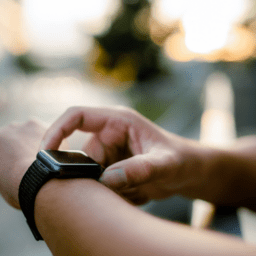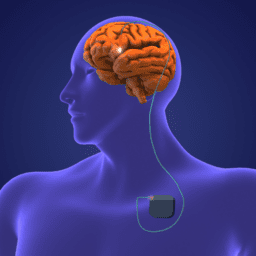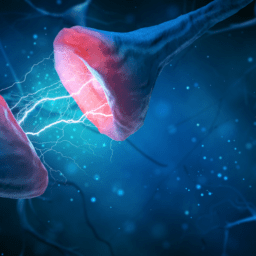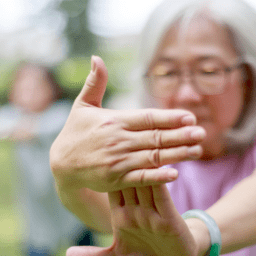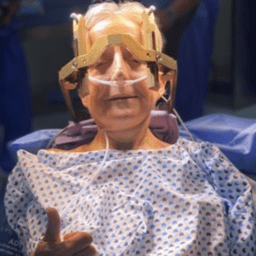This month’s “What’s New in Parkinson’s” post features a surprising study about alpha-synuclein and tau as factors in Parkinson’s pathophysiology, multiple articles describing nuances of deep brain stimulation, and stories about exceptional athletes living with Parkinson’s.
Read on for all of November’s Parkinson’s news!
SCIENCE AND RESEARCH Updates
- Chu et al. found dopaminergic neurodegeneration can independently occur of alpha-synuclein aggregation. They claim that tau–a protein more commonly associated with Alzheimer’s–is involved in early stages of Parkinson’s-related neurodegeneration. These findings are “striking,” because alpha-synuclein has long been thought to be the more significant driver of Parkinson’s pathology.
- An article in NPJ highlights the potential of smartphones and wearable technology to help research and manage multiple conditions–including Parkinson’s. The article highlights cost, accessibility, and safeguarding health data as areas of concern.
- Hanff et al. discuss sex-specific differences in Parkinson’s. Women living with Parkinson’s were observed to have slower progression of cognitive issues, apathy, and sleep disturbances. Women with Parkinson’s also have significantly worse scores for depression and pain at diagnosis. Depression and bodily discomfort were the only two symptoms examined that progressed faster for women than for men.
- Risk factors commonly associated with increased incidence of obstructive sleep apnea include older age, male sex, and higher BMI. In a new study of 1448 people living with Parkinson’s, 45% of participants experienced sleep apnea. In addition to the general risk factors, for people experiencing Parkinson’s, more severe motor symptoms, dopamine agonist use, and more prevalent daytime sleepiness were associated with risk of sleep apnea. Early detection is an aspect of improving health outcomes for people living with Parkinson’s and obstructive sleep apnea.
- In an animal model of Parkinson’s, researchers found that a high-sugar diet did not induce neurodegeneration and protected from induced neurodegeneration caused by the neurotoxin 6-OHDA, which is commonly used to induce neurodegneration in animal studies. But don’t go stocking up on ice cream: Although this research involved non-human animals, the research found decreases in life-span are associated with a high-sugar diet.
- Gene therapy targeting the brain’s dopamine system reversed symptoms of Parkinson’s without dyskinesia in primate research.
- A team of palliative care experts explored benefits of educating general neurologists about palliative care for people with Parkinson’s. The benefits were minor, but the team sees opportunities to improve the education provided and the interventions recommended.
- Henrich et al. discuss the role of mitochondria in Parkinson’s.
- Bifidobacteria can feed on levodopa. Cirstea et al. found there is an association between high levels of bifidobacteria and high doses of levodopa. They offer two possible explanations for the association. People with higher levels of bifidobacterium require a higher dose of levodopa because their gut bacteria consumes part of each dose. Additionally, people who require higher doses of levodopa support a large volume of bifidobacterium which uses residual L-DOPA for metabolic purposes. Over-interpreting this research would be a mistake, Cirstea et al. cite the low efficiency of bacteria in consuming levodopa and that other digestive disturbances are likely more influential on metabolism of levodopa.
- By evaluating voice recordings, AI technology differentiates people with Parkinson’s from people without Parkinson’s.
- Three Parkinson’s experts describe why they believe genetics are rarely sufficient to explain the onset of Parkinson’s.
- A new Parkinson’s research center is being formed at Yale University.
TREATMENT and Therapy Updates
- Marc Gauthier from Bordeaux, France, who lives with advanced Parkinson’s, received a spinal implant that dramatically improved his walking ability. The device was implanted as a part of early stage research; six more people with Parkinson’s will soon receive similar devices. Researchers note that deep brain stimulation (DBS) may have similar effects, but in the future, the spinal implant may be an alternative for people who are not good candidates for DBS.
- Genetic subtyping of people with Parkinson’s may help predict efficacy of DBS. Pal et al. discuss the controversies and gaps in knowledge surrounding risks of subthalamic DBS for people who carry certain GBA gene variants.
- In a letter to the editor of Brain Stimulation, Sasikumar et al. report on a small study that used DBS to provide intermittent stimulation to a part of the brain called the nucleus basalis of Meynert. Intermittent stimulation improved sustained attention, while continuous stimulation had no affect on cognition. This may support previous findings in primate research; there are implications of the research regarding gait.
- In Movement Disorders, Boogers and Fasano describe differences between DBS targeting the subthalamic nucleus and DBS targeting the globus pallidus internus. The former can have more profound positive outcomes as well as more complicated detrimental effects than the latter.
- Impulse control disorders and apathy are major challenges for many people with Parkinson’s. Theis et al. find there may be genetic risk factors for these symptoms.
- “First Steps” is a peer-led, self-management intervention for people newly diagnosed with Parkinson’s in the UK. The primary positive effect of the program is the likelihood of increased physical activity. Other possible positive effects included benefits to mental health and decreases in care partner strain.
- Asano et al. compare the safety of rasagiline, safinamide, and selegiline: three MAO-B inhibitors used to treat Parkinson’s. REM sleep behavior disorder is not associated with safinamide, but is associated with rasagiline and selegiline. This may be due to safinamide’s influence on glutamine–an influence that the other MAO inhibitors do not share.
LIVING WELL STORIES
- Golfer John Senden plans to keep professionally playing despite a recent Parkinson’s diagnosis. He says, “I’ve got to stay in the gym, stay fit and stay open, because Parkinson’s wants to close you down […] It’s not going to go away, but I’m still able to play and still enjoying golf.”
- Rolling Stone shares the story of renowned mixed martial artist Rickson Gracie’s unstoppable energy while living with Parkinson’s.
- Randy Bryson was diagnosed with Parkinson’s in 2012 and started Parkinson’s Artisans to help people with Parkinson’s share the benefits he found from participating in creative arts.
- Diagnosed with Parkinson’s amidst a successful career, Bill Brown has lived with Parkinson’s for nearly 10 years. He is committed to family and fundraising, and inspires his sons as they pursue their dream of being olympic athletes.
- USA Today features the story of Sara Whittingham, a physician diagnosed with Parkinson’s three years ago and competed in a 140-mile triathlon.
SURVEYS, CLINICAL TRIALS, AND VOLUNTEER OPPORTUNITIES
- Researchers in the UK and Australia began recruiting participants for a trial aiming to prevent people with REM sleep behavior disorder from developing Parkinson’s by reducing inflammation.
- Researchers in Sweden will begin recruiting participants for a trial of montelukast versafilm: a drug used to treat asthma and allergies. The research will explore whether montelukast has any neuroprotective effect.
- Texas Tech in Lubbock, Texas is undertaking a study about the effects of Parkinson’s on family functioning.
- Researchers in Holland are enrolling participants in a trial evaluating the use of motivational smartphone apps to increase exercise program adherence.
- Inhibikase is recruiting participants for a phase 2 trial of a new c-Abl tyrosine kinase inhibitor. In a press release, Inhibikase says their research “has validated the critical role that c-Abl plays in the initiation and progression of Parkinson’s disease, as well as the potential of IkT-148009 as a promising new approach to disease modification.” This trial is among the first to utilize recently validated alpha-synuclein seed assay tests.
- The International Parkinson and Movement Disorders Society (MDS) is developing a new electronic diary (e-Diary): a digital solution for Parkinson’s. This e-Diary is intended to better characterize how the disease affects daily life. The MDS invites people to participate in a survey to help aid the design of this new tool.
- A new trial studying Gemfibrozil, a drug that decreases fat production in the liver, is set for a phase two clinical trial in people with Parkinson’s. This trial will enroll people between 40 and 75 years of age who have not begun taking medication for Parkinson’s.
- The Speech Accessibility Project (SAP) seeks volunteers for a research initiative aiming to make voice recognition technology more useful for people with diverse speech patterns. More information is available here and here. To determine whether you are eligible to participate, visit the SAP registration page.
- A team of Dutch researchers created PregSpark, a registry for women with Parkinson’s who are pregnant or have recently given birth. The goal is to build an online international pregnancy and Parkinson’s registry. This registry will prospectively and uniformly collect data on the course and outcome of as many as possible pregnancies in women with Parkinson’s. This data will help women with Parkinson’s make informed decisions about pregnancy and improve the quality of care pregnant women with Parkinson’s receive. The PregSpark site is currently under construction but should be completed soon.
- A phase 1b trial is recruiting volunteers for a study of a treatment aiming to influence inflammation.
- Researchers in Norway are investigating the efficacy of ambroxol in people with dementia with Lewy bodies.
- Researchers in the UK, in partnership with the Women’s Parkinson’s Project and MyMovesMatter, invite participation in a survey about the experience of menopause for women with Parkinson’s.
- Another study of ambroxol is launching: The DUPARG study is recruiting participants in Groningen, Netherlands.
- A new trial examining the possible neuroprotective effect of exercise has been listed by the University of Nevada.
- University of Rochester Center for Health + Technology is undertaking a survey study to assess the ability of the Parkinson’s Disease-Health Index to measure patient-relevant changes in disease burden over the course of two years. Participants will complete surveys five times over two years and must be over 18, speak English, and have a self-reported or clinical diagnosis of Parkinson’s. More information is available here.
- Researchers at Columbia University’s Irving Medical Center are seeking participants for a study exploring the role of immune response in Parkinson’s. Participation is open to those with and without Parkinson’s and will involve donating blood, a questionnaire, a cognitive test, and a neurological examination. Click here to express interest in participating.
- Johns Hopkins University has announced a trial to evaluate whether levetiracetam can improve symptoms of Parkinson’s psychosis. The trial is not yet recruiting, but the plan is for it to begin by September. The trial design features a crossover assignment, which means every participant will receive an active trial drug for their participation.
- The LUMA trial continues to recruit participants. This trial aims to assess the safety and efficacy of BIIB122 tablets in slowing the progression of early-stage Parkinson’s. This study has sites in the US, China, France, Germany, the Netherlands, Poland, Spain, and the UK.
- The ACTIVATE trial is recruiting participants for a phase 2 trial of BIA 28-6156 in people with GBA mutations. This 78-week trial has site locations in the US, Canada, and Europe.
- In Colorado, a study the Foundation is funding continues to recruit participants. The study explores low-load resistance training with blood flow restriction to help develop exercise interventions for improved quality of life for people with advanced Parkinson’s.
- Washington University School of Medicine is sponsoring a study aiming to enroll participants with idiopathic REM sleep behavior disorder, as well as healthy controls, in preparation for a trial of neuroprotective treatments against synucleinopathies.
- A study in South Carolina hopes to identify brain biomarkers to predict the risk of cognitive change following DBS surgery.
- A survey in Ireland seeks to understand the influence of Parkinson’s symptoms and other factors on the quality of life.
- Another survey for those in Ireland seeks to understand how people access information about Parkinson’s.
- A trial sponsored by the University of Aberdeen in Scotland is recruiting participants for a study of the effects of constipation and changes in the microbiota in Parkinson’s.
- Staying Connected through Communication Study: The University of Washington SPEAC Lab invites individuals living with Parkinson’s to answer survey questions about their communication experiences. This is an online survey study that will take about 30-45 minutes. (Paper surveys are also available.) People with Parkinson’s and their family/friends/coworkers will complete SEPARATE surveys, and data are not shared between participants. This study is open to anyone in the US. Each participant will be mailed a $25 check upon survey completion.
- PreActive PD Study: This study, available for both English and Spanish speakers, implements an occupational-therapist-delivered physical activity behavior change coaching intervention in people with early-stage Parkinson’s. The study is based upon a recent single-arm cohort feasibility study (Pre-Activate PD/HD) that evaluated acceptability, implementation, and resulting effect estimates of the Pre-Activate PD intervention in 13 participants. The intervention provides one-on-one coaching sessions from an occupational therapist to individuals newly diagnosed with Parkinson’s. The individualized structured support in the sessions is aimed at facilitating and optimizing exercise uptake as part of an effective self-management program.
- Gamma Wave Trial: Sponsored by the Massachusetts Institute of Technology (MIT), this trial investigates the efficacy of a non-invasive method of neuromodulation called Gamma Entrainment Using Sensory Stimulation (GENUS) for managing Parkinson’s motor symptoms. GENUS is administered via light, sound, and tactile stimulation devices and has been tested on cognitively normal individuals and individuals with mild Alzheimer’s; the device was found to be safe for use and effective for entrainment in both populations.
- Deep Brain Stimulation (DBS) and Exercise Study at Barrow Neurological Institute: This study aims to help researchers learn more about how aerobic exercise affects symptoms of Parkinson’s and the quality of life in people who have DBS. They will also look at brain wave activity using the Medtronic Percept DBS device to better understand what changes in the brain might be caused by exercise and how that affects Parkinson’s symptoms. Phoenix-area residents reach out to Markey if interested.
- Colorado Oral Strengthening Device: The University of Colorado Denver is looking for adults with Parkinson’s to participate in a study exploring how a novel low-technology device can increase tongue strength comparable to standard-of-care exercise using tongue depressors but with the kinematics and simple biofeedback of existing high-cost devices. Research has shown that tongue resistance exercises paired with biofeedback result in improved tongue strength to support chewing, control of food and liquid in the mouth, and propulsion of material for a swallow.
- PD GENEration: The Parkinson’s Foundation announces a major expansion of its national study to make genetic testing and counseling more available for people with Parkinson’s. The study (NCT04057794) hopes to enroll 15,000 people in all 50 US states, Puerto Rico, and the Dominican Republic. For questions about enrollment, email genetics@parkinson.org. Know someone who speaks Spanish and wants to learn more and maybe participate in the study? Share this link.
- Parkinson’s Progression Markers Initiative: In an expanded study, the Parkinson’s Progression Markers Initiative (PPMI) is currently working to enroll up to 100,000 people with and without Parkinson’s. The study team is especially seeking to enroll people diagnosed with Parkinson’s in the past two years and who are not yet on treatment, as well as people 60 and older who aren’t living with Parkinson’s but have a risk factor for it (such as a close relative with Parkinson’s, a known Parkinson’s-associated mutation, and/or REM sleep behavior disorder). The observational study is also enrolling people with no known connection to Parkinson’s to serve as a control group.
- TOPAZ (Trial of Parkinson’s and Zoledronic Acid): Caroline Tanner, MD, PhD, is recruiting participants for a new remote clinical trial led by a team of Parkinson’s experts at UCSF in partnership with researchers from across the country. The study aims to help people with Parkinson’s or parkinsonism maintain their independence by reducing the risk of hip fractures. The study will test if zoledronate, an FDA-approved medication for osteoporosis, can prevent fractures in people with Parkinson’s–whether or not they have osteoporosis. To learn more, visit the study website at TOPAZstudy.org, email TOPAZ@ucsf.edu, or call (415) 317-5748.
- A PD Avengers research group is undertaking a new project called Sparks of Experience, designed to be more systematic about collecting and considering the experiences and ideas that come from the curious minds of people living with Parkinson’s. “In the past, these sometimes quirky ideas inspired by lived experience have turned into significant new directions for research. It could be said we are trying to capture serendipity,” the team says. To learn more and get involved, see the flyer here.
- Game-Based Exercise Project: Researchers at the University of Auckland are investigating how games can be used as potential rehabilitation systems. This project aims to develop suitable game-based exercise experiences to help people living with Parkinson’s. If you are 45 or older, living with a chronic condition such as Parkinson’s, and/or are experiencing age-related health conditions, you are invited to participate in a survey that will help the researchers to understand the community’s interest in games and gameplay in the context of exercise and rehabilitation. To learn more and take the 15-minute survey, see the flyer here.
- SPARX3 – A Phase 3 Clinical Trial about Exercise and Parkinson’s: This research team is currently seeking volunteers to participate in a clinical trial about the effects of aerobic exercise on people with Parkinson’s. Learn more and see if you qualify here. For more details, contact Katherine Balfany at SPARX3@ucdenver.edu.
- The University of Oulu and collaborators from Aalborg University, Fraunhofer University, the University of Manchester, the University of Glasgow, the University of Lisbon, and the University of Melbourne are conducting a survey for people with Parkinson’s and care partners about self-care. Complete the survey here to share your self-care strategies and techniques. You can also review ideas submitted by others and add them to your own self-care toolbox.
- Speech and Telemedicine Study: The Purdue Motor Speech Lab
- Parkinson’s and Service Dogs: University of Groningen, Netherlands
- Neurology Study Interest Registry: University of Rochester
For more of what’s new in Parkinson’s news, check out our full series here.
WANT MORE PRACTICAL ARTICLES LIKE THIS?
You can learn much more about living well with Parkinson’s today through our Every Victory Counts® suite of resources. Each manual is packed with up-to-date information about everything Parkinson’s. Click the link below to order your manual(s).








